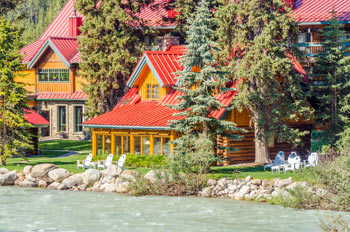8/2/2019
| SHARE
Posted in Recreational Properties by Vanguard Realty | Back to Main Blog Page

There are few things more Canadian than a weekend at the cottage, but given the leisure property’s appreciation potential, shielding it from capital gains taxes is imperative.
According to John Natale, head of tax, retirement and estate planning services at Manulife, a cottage could be taxed on its appreciation in the event of the owner’s death. If unplanned for, the estate could then be forced to sell it.
“Hopefully the cottage appreciates in value, but, unfortunately, that means 50% of that gain will be taxable just like any other capital gain,” said Natale. “To get around it, assuming you qualify—and most people would, because renting is only ancillary to the real purpose of enjoying the cottage—you could qualify under the principal residence exemption if you designate the cottage as a principal residence.”
If the capital gains tax is unavoidable, there are ways to mitigate the cost. Cottage owners should keep record of their cost bases, which are to be maximized much as possible, added Natale. For example, if a renovation is made—for example, adding a dock or building a deck—those upgrades increase the cost base, thereby reducing the capital gains.
Still, planning ahead is always advisable. Should the cottage’s owner transfer it to their children before passing away, the tax liability gets capped and any future capital gains become the children’s responsibility.
“Consider transferring the cottage to the next generation now, as opposed to waiting to pass away,” said Natale. “The benefits to doing that are manifold: You, as parents, have captured capital gains now going forward when it’s sold, so when the cottage is transferred to the next generation, any future growth is taxable to them, so you’ve capped your tax liability.”
If the owner receives a promissory note and payment doesn’t exceed a fifth per annum, the capital gain can be spread over five years, meaning only 20% needs to be reported a year.
“You might actually save tax overall because of how graduated tax rates work,” said Natale. “Because you only pay 20% capital gain each year, it may allow you to stay in a lower tax bracket whereas if you record 100% of capital gain in one year that could bump you into the top tax bracket and in a province like Ontario you’d pay 53.5% capital gains tax in the top bracket.”
Life insurance is another way to fund the tax liability.
“You can start a savings fund if you want to match the potential tax liability, or, unfortunately, you may have to pass the tax liability onto the estate when you pass away, which may be treacherous, because if the estate doesn’t have the funds it may be forced to the sell the cottage, or one of the beneficiaries may have to step up to fund the tax liability themselves.”
Real Estate Capital Gain Tax, Recreational Real Estate, Vacation Properties

